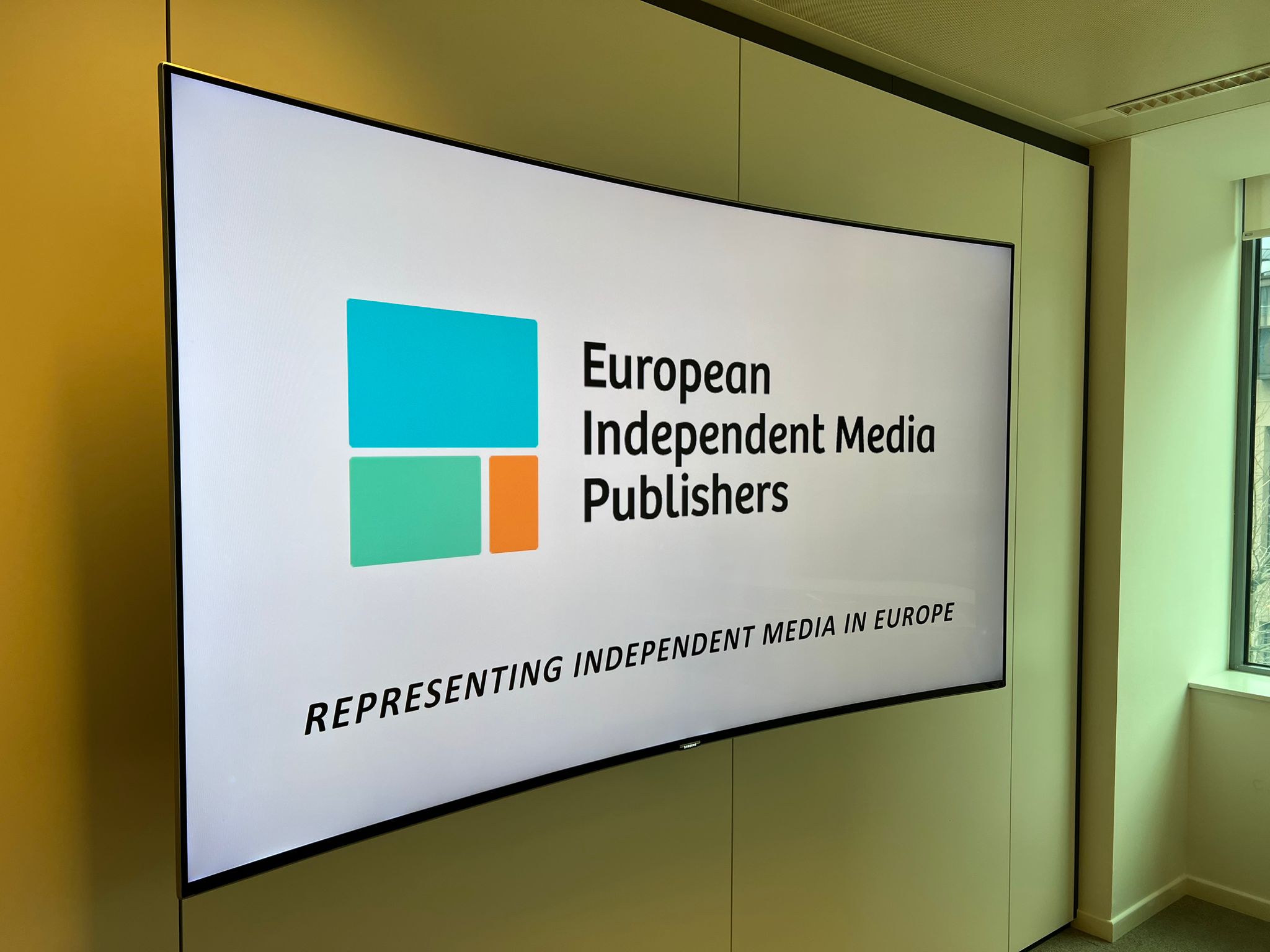On 23 February, EIMP Executive Director Mihailo Jovetic had the opportunity to participate in two panel discussions in Copenhagen, Denmark, on the European Media Freedom Act (EMFA) and on the Copyright Directive. The conference was organised and hosted by Nye Medier, EIMP’s Danish member, and welcomed policy makers, media organizations, and journalists for an open dialogue about media in Europe.
European Media Freedom Act
The first panel discussion was on the EMFA, with the following speakers taking the floor: Mads Brandstrup, Danske Medier; Allan Thulstrup, Dansk Journalistforbund; Anne Sofie Christensen-Dalsgaard, Nye Medier; and Mihailo Jovetic, European Independent Media Publishers. The debate touched on various aspects of the European Media Freedom Act, as well as related issues, including what the biggest issues are with the proposal according to the panelists, whether developments in Hungary, Poland, and elsewhere show a need for common media legislation in the European Union, and the experiences in Denmark and concerns with the proposed European Board for Media Services in relation to independence of Danish media.
The EMFA must include a clear and balanced definition of ‘media service provider’, ensuring the disparity between large, established, incumbent media, and new, independent, innovative media is not increased.
Mihailo Jovetic, EIMP Executive Director
In his intervention, EIMP Executive Director Mihailo Jovetic underlined the key aspects the EMFA must get right in order to contribute to media pluralism, freedom, and innovation in Europe:
- The EMFA must include a clear and balanced definition of ‘media service provider’ (MSP). This definition must ensure that content produced by independent, digital publishers and distributed online receives the same treatment as content produced by incumbent, legacy media publishers active online. The EMFA must not increase the disparity between large, established, incumbent media, and new, independent, innovative media.
- Economic resources must be allocated based on latest developments in the sector, not outdated methodologies and measurement systems. To this end, EIMP welcomes the proposal to update audience measurement systems and methodologies for allocating state advertising, this must take into consideration the most recent developments in the news media landscape, understanding what the current (and future) models for producing, distributing, and consuming media are. The EMFA must not regulate past models, but foster new and innovative ones.
- Small and innovative media must in general be supported more, within the EMFA where possible, but also through other initiatives, helping such actors to scale-up and further develop. EU bodies and Member States should encourage and enable the creation of new media outlets, not hamper it.
- Mergers in the media space must not lead to less media pluralism and reduce competitiveness in the media sector. EIMP is in favour of the initiative to ensure Member States take into account possible negative consequences on media pluralism and editorial independence when reviewing a concentration in the media market.
- State interference cannot be tolerated and must be limited at all costs. The EMFA is an opportunity to elevate the benchmark in terms of what is acceptable and what is not. Individual countries can of course go beyond that benchmark, but we need to work towards a common level of minimum standards.
Copyright Directive
The second panel discussion addressed the Copyright Directive, especially looking at how content is being used in relation to the neighbouring rights introduced by the Copyright Directive, which is still being transposed around the EU. Speakers taking the floor were: Thomas Noppen, Nye Medier; Karen Rønde, DPCMO; Dimitra Letsa, Google; and Mihailo Jovetic, European Independent Media Publishers. The roundtable discussion included a brief background introduction to the Directive, its history and what is happening in Denmark at present, what the the situation is across Europe and what solutions are for going forward.
EIMP Executive Director Jovetic noted the important discrepancies across Member States in transposing the Directive, with several countries being referred to the Court of Justice of the European Union (CJEU) in February 2023 for lack of progress in transposing the new rules. This creates issues in the internal market and uncertainty for market actors, as the situation varies significantly from country to country. Many Member States have done gold plating in their transposition, adding provisions that go beyond text of the agreed Directive, sometimes even including potential disproportionate costs on market players. Jovetic reiterated EIMP’s long standing position that an opt-out under Article 15 is crucial, so that content providers can decide whether to be remunerated or not for content they share online, and welcomed the positive negotiations that have been concluded and are ongoing between publishers and online platforms, not least in Denmark.


